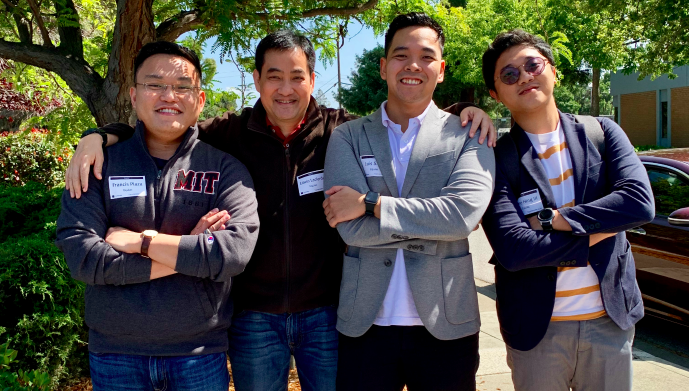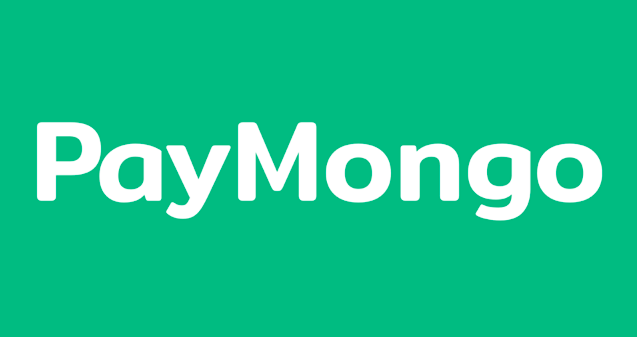PayMongo also provides merchants an easy way to get paid via payment links that can be shared through Messenger, Viber, email, SMS

PayMongo Co-founders with CEO Francis Plaza (L)
Francis Plaza, a serial entrepreneur, was long frustrated with the poor digital payments services in his home country the Philippines. One day, he decided to do something about it.
About four months ago, Plaza sat together with his Software Engineer friends to discuss the issues in the payments space in the country and developed a solution.
And it has now made it to Y Combinator’s summer batch 2019, the first Filipino fintech startup to achieve the feat.
“We started PayMongo after being frustrated for years with the cumbersome process of integrating payments into websites, apps or services in the Philippines. As a team of software engineers ourselves, we believed that adding payments should be fast and simple,” he says. “We at PayMongo are building the Stripe for the Philippines. Our vision is to be the invisible engine of commerce that will enable individuals and merchants to easily join the internet economy and grow fast into large and successful businesses.”
Located in Manila, PayMongo was started by Plaza (CEO), Luis Sia (COO), Jaime Hing (CTO), and Edwin Lacierda. Plaza has immense experience in digital payments and logistics space.
A graduate of MIT in 2013 with a degree in Computer Science and Economics, he previously worked in the US and Europe before coming back to the Philippines to start technology ventures and help grow the local startup ecosystem.
Sia is also a long-time entrepreneur, who started successful businesses in the Philippines. Most recently he founded a trading company for drones and camera accessories. He also previously started an aerial surveying startup using drones.
Also Read: Identifying leadership gaps in your organisation
With 10 years of experience working in the software industry and leading software teams with experience in e-commerce, payments and logistics, Hing was earlier at Cambridge University Press. He has also worked with Plaza in a social analytics startup as the lead engineer.
Lacierda, on the other hand, comes from a different background. He was previously the presidential spokesperson for Philippine President Benigno Aquino III. A veteran lawyer and well versed and connected with regulatory and compliance landscape, he is responsible for PayMongo’s legal and regulatory compliance.
In a nutshell, PayMongo helps businesses in the Philippines accept online payments from multiple channels fast and easy in minutes. Currently under private beta with few select partners, the fintech startup offers an API platform that allows businesses to add payments into their websites, services or apps.

“We have also built PayMongo Links (generally available to our early access invitees) to provide merchants an easy way to get paid via payment links that can be shared through Messenger, Viber, email, SMS or any form of communication with their customers –no integration required,” Plaza explains.
While there are a handful of companies operating in this vertical, PayMongo differentiates itself by providing an easy-to-use API and fast integration that allows merchants to scale without having to go through the existing pains of payments, claims Plaza. “We don’t charge setup fees or any subscription fees, unlike many of the existing providers, who charge a minimum US$500 in initial fees.”
Plaza, who has earlier co-founded 22 Delta Labs, agrees that the domestic market is still not mature and there is a lot of education to be done. He is however quick to add that the timing is perfect that general market trend is tilting towards cashless and online payments.
“Just about few days ago, Philippines’s central bank released a report that the growth of e-wallets has shadowed credit cards. While this is just a beginning, we believe that allowing faster and smoother transactions will encourage more people to pay online. Globally, still only around 5 per cent of transactions are paid online — there are still a lot of opportunities,” he shares.
In the initial period, PayMongo intends to target social sellers and small and medium businesses with its products — they are largely underserved.
Also Read: How to improve your startup management
“The way we see PayMongo is that we are building the financial infrastructure — the financial superhighway, if you may– that will allow more businesses, entrepreneurs and startups just like us to succeed in the rapidly transforming digital economy. The Philippines is a fast growing internet economy and we hope to be a key player in this space,” he notes.
How does PayMongo address the challenges with regard to government regulation, security and privacy? “As for security and privacy, we are currently under PCI validation by an independent assessor based in San Francisco. We project that to complete over the next couple of weeks. The regulatory landscape in the Philippines is very friendly now, given central bank targets to increase cashless payments to 20 per cent by 2020,” he says.
In this space, PayMongo primarily competes with Dragonpay, ipay88 and Paynamics. While they have a good head-start, he says, their UX and the barrier for small-medium businesses to avail of their services gives PayMongo an edge over them.
As part of the YC programme, PayMongo has received US$150,000, and it is now looking to raise seed round by the Demo Day to scale its product and engineering and to aggressively acquire partners and merchants.
Sharing his YC experience, Plaza says that they hadn’t expected to get selected when they applied for the programme with their just a week-old idea. “With an acceptance rate of less than 2 per cent, a startup from Manila was the last in our mind that YC would be interested in. We hope, however, that we can influence/inspire more Filipino startups to get into programmes like YC.”
“Halfway into the programme, we have been learning and inspired on how to approach startup building — from being obsessed with making our customers happy to focusing on the right aspects of product development. We hope to bring back all these ‘Silicon Valley discipline’ back to Manila and influence the community at large,” he concludes.
The post This 4-month-old Y Combinator startup wants to be the Stripe for the Philippines appeared first on e27.